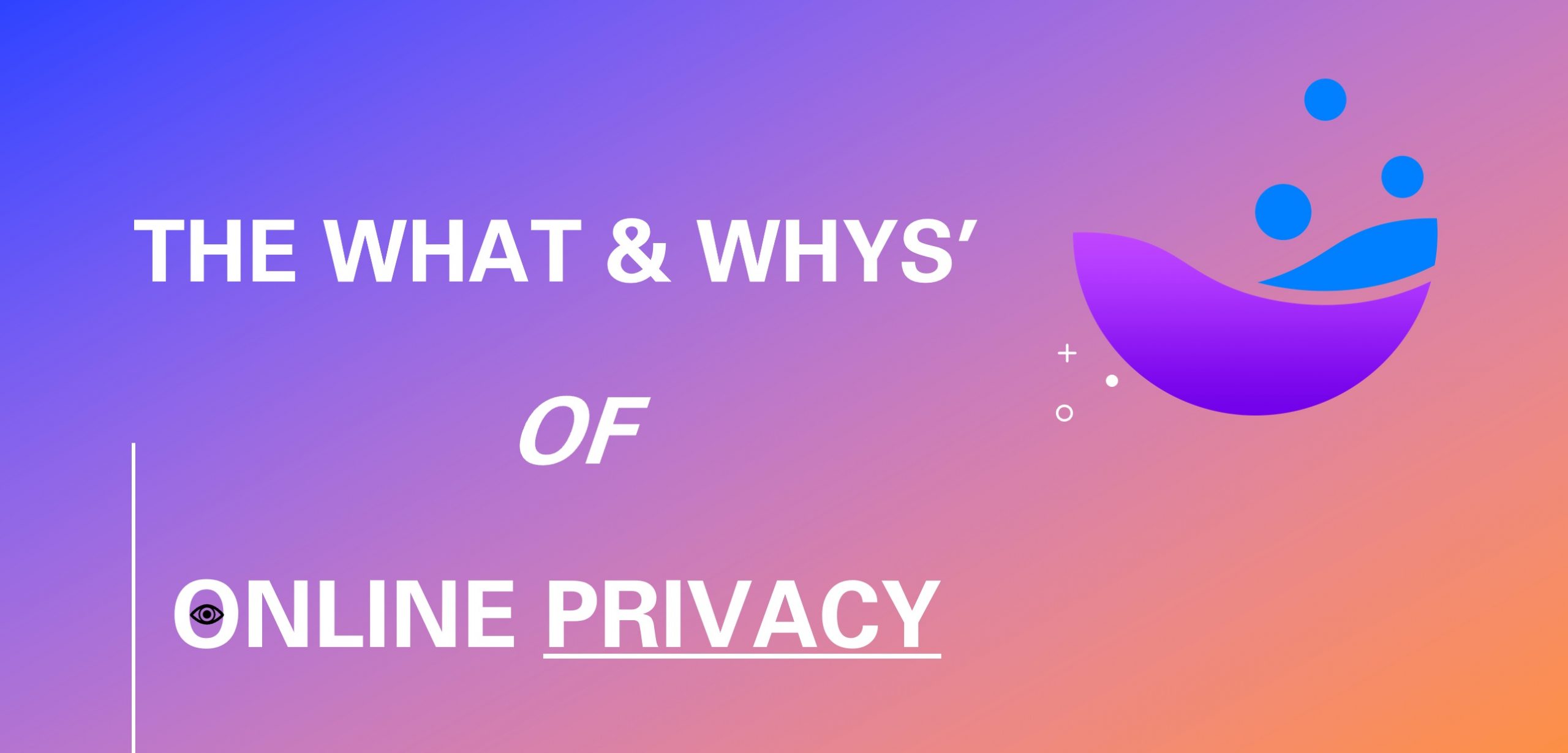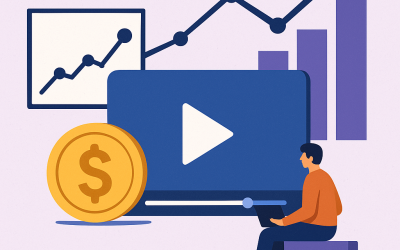Understanding Privacy Regulations in 90 seconds
This is part of a presentation I gave regarding GDPR, CCPA and the overall Privacy related issues. Here is my first Video Post so you can understand Privacy, Regulations and what it means for the Ad economy, in less than 90 seconds!
I have omitted some talking points but overall here is the gist of it, starts with Slide 1
Contents
Slide 1 – What is Online Privacy?
Slide 1 talks about Privacy. Online privacy, in essence, is the right to keep your digital life to yourself. It’s the control over your data—how much of it gets shared, who gets to see it, and what they can do with it. In a world where your digital footprint extends across various platforms, preserving this privacy becomes a complex, yet vital, endeavor.
Slide 2 – What Gets Collected?
The second slide on Understanding Privacy Regulations in 90 seconds post – Virtually every click, search, or interaction online can be tracked and harvested. This includes:
- Personal Details: Name, age, gender, and contact information.
- Browsing Habits: Websites visited, search queries, and time spent on pages.
- Location Data: Physical movements through GPS or IP addresses.
- Device Information: Type of device, operating system, and even battery level.
- Engagement Data: Likes, comments, and shares on social media platforms.
Slide 3 – What is the End Goal?
Third slide on Understanding Privacy Regulations in 90 seconds, The primary objective behind collecting this data is often monetization through targeted advertising. By understanding your preferences, companies can tailor ads to you, making them more effective. However, data collection serves other ends too, such as:
- Improving User Experience: Data helps platforms optimize their services to suit user needs better.
- Analytics: Understanding trends and behaviors aids in strategic decision-making for businesses.
- Security: Anomaly detection in data can flag fraudulent activities.
- Personalization: From news feeds to shopping suggestions, personalization is key to retaining users.
Slide 4 – Why the concern
Forth slide on Understanding Privacy Regulations in 90 seconds The digital age offers unprecedented convenience but also breeds significant privacy concerns. Here’s why they matter:
- Surveillance and Autonomy: The extensive tracking of online activities can feel like surveillance. This pervasive data collection often occurs without explicit consent, infringing on personal autonomy.
- Data Security: With massive data repositories come increased risks of breaches. Personal information, once leaked, can lead to identity theft, financial fraud, and more.
- Behavioral Manipulation: Advertisers and platforms may use data to manipulate consumer behavior subtly. This raises ethical questions about free will and consent in the digital marketplace.
- Lack of Transparency: Often, users are unaware of the extent of data collected and how it’s used. This lack of transparency erodes trust and empowers entities to use data irresponsibly.
- Information Overload: Inundating users with targeted content based on their data can lead to an echo chamber effect, narrowing the diversity of information encountered online.
Slide 5 – Who is Concerned?
Slide 5 talks about who is concerned about privacy? In the quest to safeguard online privacy, several regulatory frameworks and bodies stand out as bulwarks against the misuse of personal data. Here’s a list of the key players:
- General Data Protection Regulation (GDPR) – European Union: The GDPR represents a robust privacy and security law, mandating stringent data protection requirements for companies operating in the EU and handling EU citizens’ data.
- California Consumer Privacy Act (CCPA) – United States, California: The CCPA gives Californians significant control over their personal information, influencing nationwide practices in the U.S.
- The Information Commissioner’s Office (ICO) – United Kingdom: The ICO is an independent authority set up to uphold information rights, promote data privacy for individuals, and encourage openness by public bodies.
- Lei Geral de Proteção de Dados (LGPD) – Brazil: The LGPD is Brazil’s primary law for data protection, with principles similar to the GDPR, enhancing privacy rights for individuals in Brazil.
- The Australian Privacy Principles (APPs) – Australia: Under the Privacy Act 1988, the APPs set out standards, rights, and obligations for the handling, holding, accessing, and correction of personal information.
- Data Protection Act – Various Countries: Many nations have their own versions of a Data Protection Act, serving as the cornerstone of data protection laws, such as in Singapore, India, and New Zealand.
These frameworks are instrumental in enforcing privacy rights, with many countries looking to the GDPR as a model for crafting or updating their own privacy laws.
Slide 6 – GDPR?
So the 6th Slide on Understanding Privacy Regulations in 90 seconds post is about GDPR. So what is GDPR? The General Data Protection Regulation (GDPR) is a comprehensive data protection law that came into effect on May 25, 2018, within the European Union. It aims to give individuals control over their personal data and to simplify the regulatory environment for international business by unifying regulations within the EU.
Key Aspects of the GDPR include:
- Consent: Individuals must give clear consent for data processing.
- Right to Access: Individuals can request access to their personal data.
- Data Portability: The right to transfer data from one service provider to another.
- Right to be Forgotten: Individuals can have their data deleted.
- Breach Notification: Mandatory reporting of data breaches within 72 hours.
- Data Protection Officers (DPOs): Organizations must appoint a DPO to oversee compliance.
As a reminder, the GDPR not only applies to organizations located within the EU but also to those outside the EU if they offer goods or services to, or monitor the behavior of, EU data subjects. Non-compliance can lead to hefty penalties, up to 4% of annual global turnover or €20 million (whichever is greater).
Slide 6 – CCPA?
So what is CCPA? The California Consumer Privacy Act (CCPA) is a state statute intended to enhance privacy rights and consumer protection for residents of California, USA. Effective from January 1, 2020, the CCPA provides California residents with the right to:
Know About Personal Data Collection: Consumers can ask about the types of personal information companies collect and why.
- Access Their Data: They have the right to request a copy of the specific personal information collected about them over the past 12 months.
- Data Deletion: Consumers can request the deletion of personal information, with some exceptions.
- Opt-Out of Sale: They can direct a business not to sell their personal information.
- Non-Discrimination: Exercising their CCPA rights won’t result in discriminatory treatment by businesses.
The CCPA applies to for-profit entities that collect consumers’ personal data, do business in California, and meet certain thresholds. It has served as a model for other states and has prompted calls for federal privacy legislation in the United States.
Before I conclude, the era where digital footprints are as permanent as ink, privacy matters more than ever. It can be Identity Protection, Personal Safety, Freedom of Expressionor just a Peace of Mind but knowing your personal details are protected allows you to navigate the digital world with confidence.
In short, privacy is the bedrock of our digital autonomy. Without it, the integrity of our digital selves is at risk.



